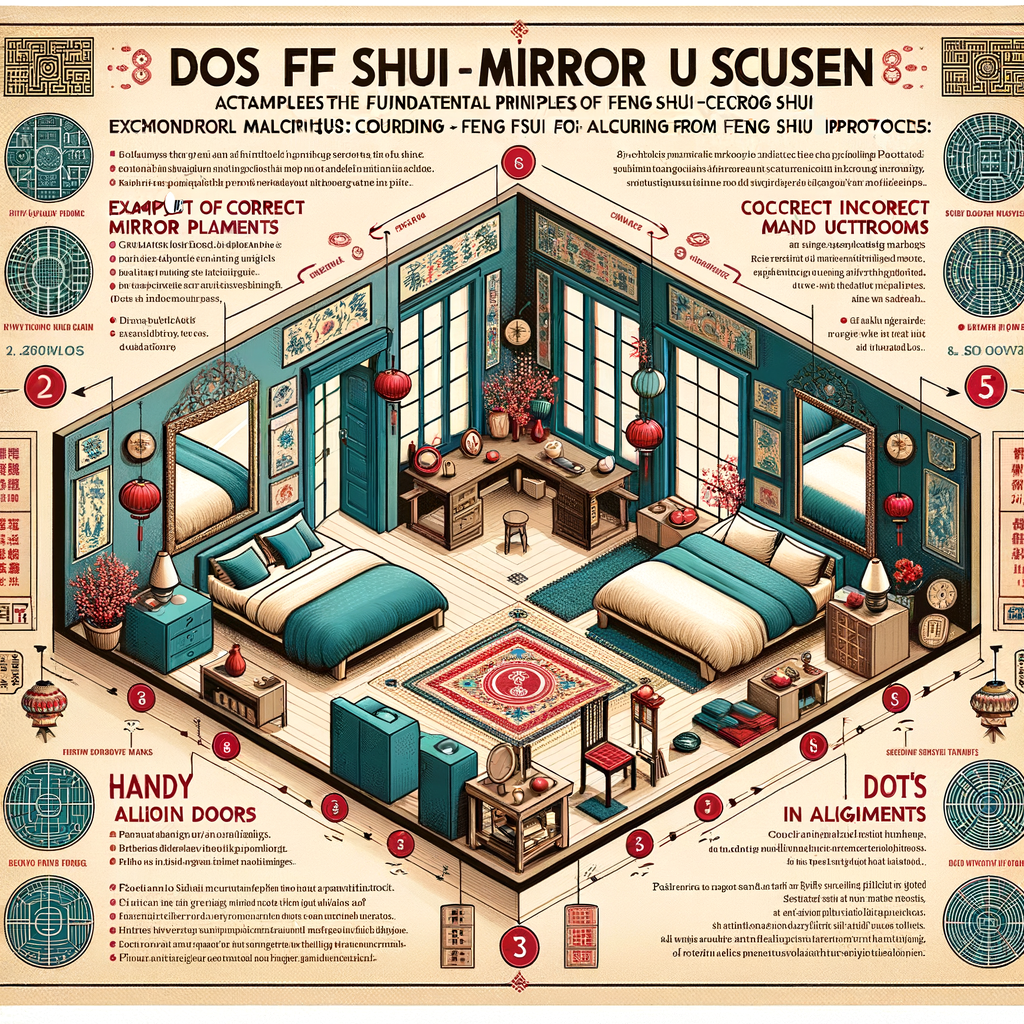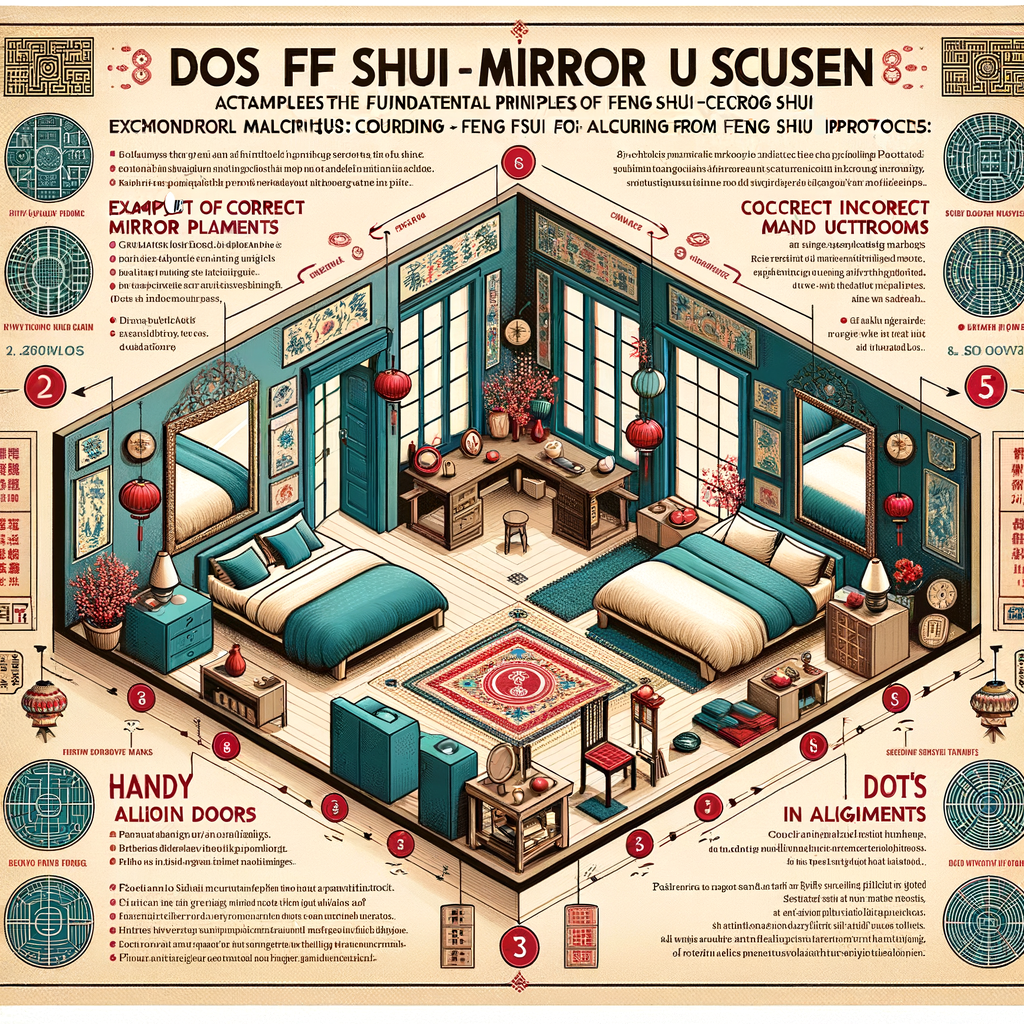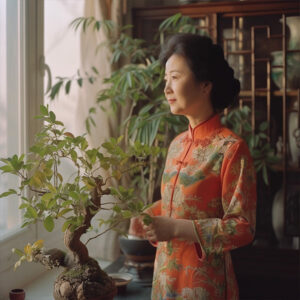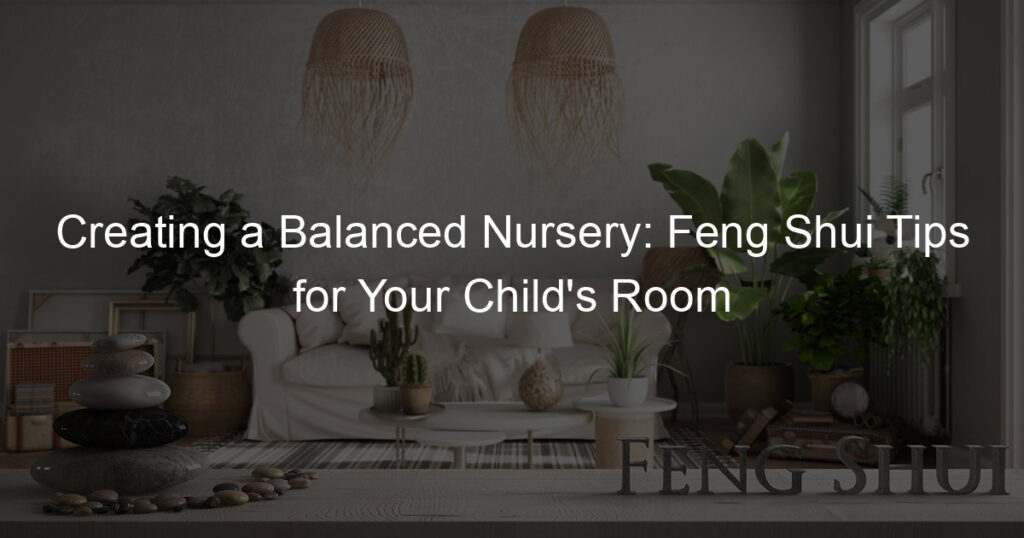
Introduction to Feng Shui Practices
Welcome to our comprehensive guide on Feng Shui practices. This ancient Chinese art has been practiced for over 3,000 years and is still relevant today. It’s all about balancing energies in your surroundings to assure health and good fortune. Let’s dive into the basics and understand its importance in our daily lives.
-
Understanding the Basics of Feng Shui
Feng Shui, pronounced as “Fung Shway,” is a Chinese philosophical system of harmonizing people with their surrounding environment. The term translates as “Wind-Water” in English. This practice is based on the Taoist vision and understanding of nature, particularly the idea that the land is alive and filled with Chi, or energy.
The basic principles of Feng Shui revolve around the concepts of Yin and Yang – opposing forces that need to be in balance for harmony. It also involves the five elements – Wood, Fire, Earth, Metal, and Water – that interact in certain ways, typically defined as the Productive and Destructive cycles.
Each element is associated with a particular color, direction, and aspect of life. For instance, Wood represents growth and creativity, and its colors are green and blue. Understanding these principles can help you apply Feng Shui in your home, office, or garden.
-
Importance of Feng Shui in Daily Life
Feng Shui is not just about rearranging furniture. It’s a way of life. It encourages us to live in harmony with nature, our environment, and others around us. By applying Feng Shui principles, we can create a more balanced and positive environment.
Studies have shown that a well-arranged and harmonious environment can improve mood, reduce stress, and enhance productivity and creativity. In a Feng Shui home, every item has its place and purpose, which can help reduce clutter and create a sense of peace and calm.
Moreover, Feng Shui can also help improve your health. For example, a bedroom that follows Feng Shui principles can promote better sleep. Similarly, a Feng Shui office can help reduce work-related stress and improve productivity.
In the following sections, we will delve deeper into the fascinating world of Feng Shui and mirrors, their placement, and tips for harnessing their power. Stay tuned!
Feng Shui and Mirrors
When we delve into the world of Feng Shui, we find that mirrors play a significant role. They are not just decorative pieces or tools for personal grooming. In Feng Shui, mirrors possess a deeper, more spiritual significance.
- Role of mirrors in Feng Shui
- Understanding Feng Shui mirror rules
Mirrors in Feng Shui are considered powerful tools to adjust the flow of energy in a space. They are used to reflect, expand, and redirect energy, enhancing the positive aspects and mitigating the negative ones. Mirrors can amplify the light and create a sense of spaciousness, making them ideal for small or dark rooms. They can also reflect beautiful views, thus doubling the positive energy they bring.
While mirrors can be beneficial in Feng Shui, it’s crucial to understand and follow certain rules to maximize their positive effects. For instance, mirrors should reflect pleasant views and not negative elements like clutter or sharp corners. They should not be placed facing the front door, as this is believed to reflect away good energy. Also, mirrors should be kept clean and unbroken to ensure they reflect clear and positive energy.
Understanding the role of mirrors in Feng Shui and following the mirror rules can help create a harmonious and positive environment in your home or workplace. Remember, the key is to use mirrors thoughtfully and purposefully, always considering what they reflect and where they direct energy.
Use of Mirrors in Feng Shui
In the ancient Chinese practice of Feng Shui, mirrors play a significant role. They are not just decorative pieces, but powerful tools that can alter the flow of energy in a space. Let’s delve into how mirrors are used in Feng Shui and the benefits they bring.
- How mirrors are used in Feng Shui
- Benefits of using mirrors in Feng Shui
Mirrors in Feng Shui are used as remedies and cures. They are strategically placed to reflect and redirect the flow of energy, or ‘Chi’, in a room. For instance, a mirror placed opposite a window can reflect the outdoor scenery into the room, bringing in more natural energy. Mirrors can also be used to expand a space visually, creating a sense of openness and freedom.
Moreover, mirrors are used to counteract negative energy. If a part of your home faces a busy road or a construction site, a mirror can be used to deflect the disruptive energy away from your living space. It’s like having a protective shield that keeps the harmony and tranquility of your home intact.
Using mirrors in Feng Shui can bring numerous benefits. First, they can enhance the positive energy in a room. A well-placed mirror can double the energy of an area, making it more vibrant and lively. This can uplift your mood and make you feel more energized.
Second, mirrors can help in attracting prosperity and wealth. In Feng Shui, water is associated with wealth, and since mirrors have a reflective surface like water, they are believed to attract financial prosperity when placed correctly.
Lastly, mirrors can improve relationships. In Feng Shui, the bedroom is a symbol of love and relationships. A mirror placed in the bedroom can reflect the couple’s energy, strengthening their bond and promoting harmony.
In conclusion, mirrors are more than just reflective surfaces in Feng Shui. They are powerful tools that can manipulate energy, bring prosperity, and improve relationships. So next time you hang a mirror, remember, it’s not just about where it looks good, but also where it does good.
Mirror Placement in Feng Shui
In the practice of Feng Shui, mirror placement plays a crucial role in directing and enhancing the flow of energy, or “Chi”, in your home. Let’s delve into the general rules of mirror placement, as well as specific rules for different rooms.
- General Feng Shui mirror placement rules
- Mirrors should be placed at a height where they can reflect the tallest person in the household.
- They should reflect pleasant views and positive aspects of the room.
- Mirrors should be kept clean and clear, as dirty mirrors can cloud your perspective and judgment.
- Broken or cracked mirrors should be replaced immediately as they can bring bad luck.
- Specific rules for different rooms
- Living Room: A mirror in the living room can bring prosperity and wealth. It should reflect a beautiful view or an auspicious symbol.
- Dining Room: A mirror reflecting the dining table multiplies food abundance and wealth.
- Kitchen: Avoid placing mirrors in the kitchen, especially if it reflects the stove or fire, as it can lead to disagreements and conflicts.
- Bathroom: Mirrors in the bathroom should not face the toilet. A mirror on the outside of the bathroom door can help to keep the negative energy inside.
Mirrors in Feng Shui are used to reflect and multiply positive energy, and deflect negative energy. Here are some general rules to follow:
Different rooms have different energy flows, and thus, require different mirror placements. Here are some specific rules:
Remember, the key to successful Feng Shui mirror placement is to always be mindful of what the mirror reflects. By following these rules, you can harness the positive energy and bring balance and harmony into your home.
Feng Shui Mirror Facing Door
One of the most significant aspects of Feng Shui is the placement of mirrors, particularly when a mirror is facing a door. This concept is often misunderstood, but with a little insight, you can master this Feng Shui principle.
- Understanding the concept
- Do’s and Don’ts
The idea of a mirror facing a door in Feng Shui is based on the belief that mirrors can reflect and bounce back energy. When a mirror is placed directly opposite a door, it is believed to reflect positive energy entering through the door, back out of the room. This is seen as a loss of positive energy or ‘Chi’ for the home.
When it comes to placing a mirror facing a door, there are a few key do’s and don’ts to keep in mind.
| Do’s | Don’ts |
|---|---|
| Do place the mirror on a wall perpendicular to the door, so it doesn’t reflect the door directly. | Don’t place a mirror directly opposite the front door or any door. |
| Do use mirrors to reflect beautiful views or peaceful images within your home. | Don’t use mirrors to reflect clutter, sharp corners, or other negative aspects of your home. |
Remember, the goal of Feng Shui is to create a harmonious flow of positive energy throughout your home. By understanding the concept of mirror placement and following these do’s and don’ts, you can enhance the Feng Shui of your home.
Feng Shui Mirror in Bedroom
One of the most significant aspects of Feng Shui is the placement of mirrors, especially in the bedroom. This section will delve into the importance of mirror placement and common mistakes to avoid.
- Importance of Mirror Placement in Bedroom
- Common Mistakes and How to Avoid Them
The bedroom is a sanctuary, a place of rest and rejuvenation. In Feng Shui, the correct placement of mirrors can enhance the flow of positive energy, or Chi, in the room. A well-placed mirror can reflect and double the positive aspects of your life, such as wealth and health. It can also help to deflect negative energy.
For instance, placing a mirror opposite a beautiful view can bring the beauty and energy of the outdoors into your bedroom. However, a mirror reflecting the bed can disrupt sleep and create a restless energy in the room.
Despite the benefits, there are common mistakes people make when placing mirrors in their bedrooms. Here are some examples and how to avoid them:
| Mistake | Solution |
|---|---|
| Placing a mirror directly opposite the bed | Move the mirror to a different wall or angle it away from the bed |
| Using a broken or cracked mirror | Replace the mirror as it can symbolize poor health or difficulties |
| Placing a mirror facing the bedroom door | Relocate the mirror as it can push away positive energy entering the room |
Remember, the goal of Feng Shui is to create a harmonious environment that supports health, wealth, and happiness. By avoiding these common mistakes, you can ensure your mirror placement supports your well-being and success.
Feng Shui Mirror Tips
When it comes to Feng Shui, the mirror is a powerful tool. It can bring positive energy into your home or office, but only if used correctly. Here are some tips to help you make the most of your Feng Shui mirror.
- Choosing the right mirror
- Shape: Round mirrors are the most auspicious in Feng Shui because they represent unity and completeness. Avoid mirrors with sharp corners or irregular shapes, as they can create negative energy.
- Size: The size of the mirror should be appropriate for the space. A mirror that is too large can overwhelm the room, while a mirror that is too small may not have the desired effect.
- Quality: A high-quality mirror will reflect more positive energy than a low-quality one. Look for a mirror with a clear, undistorted reflection.
- Correcting mirror placement mistakes
- Reflecting negative energy: If your mirror is reflecting clutter, sharp corners, or other sources of negative energy, move it to a different location.
- Reflecting the bed: In Feng Shui, it’s considered bad luck to have a mirror reflecting the bed. If this is the case in your bedroom, reposition the mirror or cover it at night.
- Placing mirrors back to back: This can create a loop of energy that is hard to control. Instead, place mirrors in a way that they reflect positive aspects of your space.
Not all mirrors are created equal, especially when it comes to Feng Shui. The mirror you choose can have a big impact on the energy in your space. Here are some things to consider:
Even the best mirror can’t do its job if it’s not placed correctly. Here are some common mirror placement mistakes and how to correct them:
Remember, Feng Shui is all about balance and harmony. By choosing the right mirror and placing it correctly, you can enhance the positive energy in your home or office.
Case Studies: Feng Shui and Mirrors
Let’s explore two real-life case studies that demonstrate the impact of mirror placement in Feng Shui. These examples will help us understand the positive and negative consequences of mirror placement.
-
Case Study 1: Positive Impact of Correct Mirror Placement
Consider the case of a small business owner, John. John’s office was cramped and cluttered, which made it difficult for him to focus on his work. After learning about Feng Shui, he decided to incorporate it into his office design.
John placed a mirror on the wall opposite his desk, reflecting a view of a nearby park. This simple change made his office feel more spacious and less cluttered. He also noticed an improvement in his productivity and overall mood. The mirror reflected positive energy from the park, creating a more harmonious and balanced environment.
John’s case is a perfect example of how correct mirror placement can positively impact our lives. It not only improved his workspace but also his productivity and mood.
-
Case Study 2: Negative Consequences of Incorrect Mirror Placement
Now, let’s consider the case of Sarah, a homeowner who was unaware of the principles of Feng Shui. She placed a large mirror in her bedroom, directly facing her bed.
Over time, Sarah began to experience restless nights and a general sense of unease in her home. After consulting with a Feng Shui expert, she learned that the mirror was reflecting negative energy back into her bedroom, disrupting her sleep and overall well-being.
Once Sarah moved the mirror to a more appropriate location, she noticed a significant improvement in her sleep quality and overall mood. This case study highlights the importance of correct mirror placement and the potential negative consequences of getting it wrong.
In conclusion, the placement of mirrors in Feng Shui is not a trivial matter. As these case studies demonstrate, correct mirror placement can bring about positive changes, while incorrect placement can lead to negative outcomes. Therefore, it’s crucial to understand and apply the principles of Feng Shui when placing mirrors in your home or workspace.
Conclusion: Mastering the Mirror in Feng Shui
As we reach the conclusion of our exploration into the world of Feng Shui and mirrors, it’s important to take a moment to reflect on what we’ve learned. Mirrors, when used correctly, can be a powerful tool in Feng Shui, helping to balance energy, create harmony, and bring prosperity into your home or office.
- Recap of Feng Shui mirror rules
- Never place a mirror directly opposite the front door, as it can push away positive energy.
- Avoid placing mirrors in the bedroom, especially if they reflect the bed, as this can lead to restlessness and poor sleep.
- Use mirrors to reflect beautiful views or positive aspects of your home, as this can double the positive energy in your space.
- Always keep mirrors clean and in good condition, as a dirty or broken mirror can reflect negative energy.
- Key takeaways for effective use of mirrors in Feng Shui
- Understanding the principles of Feng Shui and how mirrors can affect the flow of energy is crucial. This knowledge will help you make informed decisions about where to place mirrors in your home or office.
- Experiment with different placements and observe the changes in your space and your feelings. Feng Shui is a personal journey, and what works for one person may not work for another.
- Remember that the goal of Feng Shui is to create a harmonious and balanced environment. If a mirror placement doesn’t feel right, trust your instincts and adjust accordingly.
Throughout this article, we have discussed several key rules for using mirrors in Feng Shui. These include:
From our discussion, there are several key takeaways that can help you effectively use mirrors in Feng Shui:
In conclusion, mastering the use of mirrors in Feng Shui is a journey of understanding, experimentation, and balance. With the knowledge you’ve gained from this article, you’re well on your way to creating a more harmonious and prosperous environment. Remember, the key to successful Feng Shui is to always strive for balance and harmony, and mirrors can be a powerful tool to help you achieve this.














